Subscribe to ‘Words Of Hope’
Get our emails direct to your Inbox with updates about all our campaigns, trips and events.
As we re-launch our travel programme, the August edition of First Of The Month sees Amos Director Chris Rose inviting some of our Trustees to talk about the circle that we can’t square.
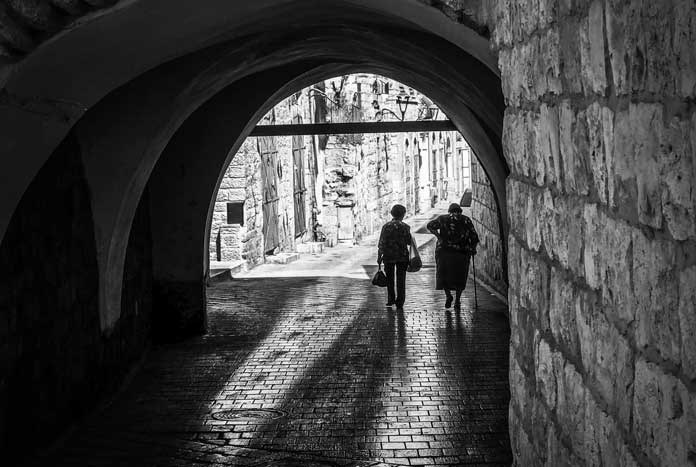
A Circle We Cannot Square
Introduction
Amos’ Travel programme has been at the heart of our work. We have long believed that the most important task we do is to take people to meet our partners.
It’s this face-to-face experience that opens up the understanding of the situation our partners face, why they do what they do and what we can do in the UK in response.
As we begin to re-emerge from the pandemic and think about re-launching our travel programme, we felt that this is a vital moment to look again at how we reconcile our trips with the environmental impacts of flying. In particular, how does it sit with our campaign for Climate Justice when our travel programme burns 400 tonnes of carbon each year?
Are we trying to dance on the top of a pin? To justify the impossible? Is it like re-framing the question: “Which brand of cigarette will do me the least harm?” We all know the answer is none of them.
Alternatively, are we right to continue in the belief that the impact of our travel programme goes beyond its environmental footprint?
Welcome to August’s First Of The Month essay.
— — — — — — — —
My Story
My involvement with Amos started in 2004 when I was asked by the church I was involved with, to go, on their behalf, on a fact-finding trip to Palestine with Amos. It changed my life and even if I had not gone on to work for Amos, its impact would still have been seismic.
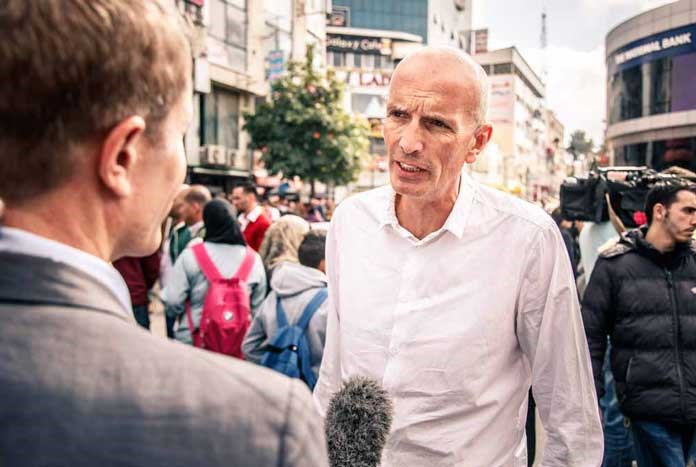
Amos Trust’s Director Chris Rose speaking to journalists in Palestine during the Just Walk To Jerusalem in 2017
— — — — — — — —
I can still see a dozen snapshots from that first trip:
I went back inspired, fired-up and deeply challenged, but also unclear as to what I could do. I had a young family and a more-than full time job. So I decided to do what the Palestinians I had met suggested — to tell their stories and to make sure that I tried to honour their commitment to justice through the work I was involved in with young people in the UK, safeguarding the rights and opportunities that they were denied as Palestinians.
Impact
I could talk of a dozen other places that I have visited with Amos that have inspired, informed and changed how I view my life and the world in which we live. This is not just my experience — it is a refrain that I hear time and again from the people who travel with us.
Jane Walker is an Amos Trustee. She joined our Board following her first visit to Palestine with us in 2016
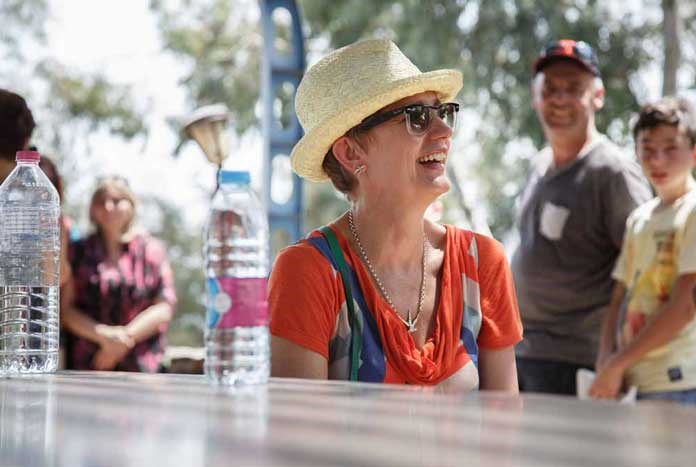
“I cannot underestimate the value of our initial and subsequent visits to Palestine as a family.”
— — — — — — — —
“In the summer of 2016, my family (me, my husband, my daughter aged 18 and my son age 16), travelled to Palestine with Amos. This visit was a life-changing experience for us all. My husband is Arabic — he left Iraq when he was 3 and had never returned. It was like a home-coming for him. For myself and the children, the people and culture felt familiar and warm.
On our return, my son announced that he 'no longer had anything to complain about as he wasn’t living under Occupation like the Palestinians’. His perspective on life changed — both he and his sister felt more connected to their Arabic heritage. They both became more interested in human rights and climate justice.
Now five years later, they are both working for charities and my daughter is also learning Arabic and hosting a radio show showcasing electronic music by women and non-binary artists from North Africa and the Middle East. As for me, I became a trustee at Amos. I returned to Palestine and friends and family have been on Amos trips and have also become Amos supporters.
My husband is Arabic — he left Iraq when he was 3 and had never returned. It was like a home coming for him. For myself and the children, the people and culture felt familiar and warm.
I cannot underestimate the value of our initial and subsequent visits to Palestine as a family. The ‘very complicated situation’ in Israel and Palestine did not seem so complicated once we were there — the injustices and inequalities were evident, irrefutable and visceral. We learnt so much and since that visit, we have all been inspired to stand in solidarity with the Palestinians and to encourage others to visit and to learn more as we did.” Jane Walker, Amos Trustee
Narrowing the distance
As we enable people to spend time with our partners who inspire us through their hospitality, dignity and commitment, we create space for people to deepen their understanding of the reality of people's lives behind the news stereotypes. It is the depth of this experience that is central to our travel programme and it is fuelled by our commitment to relationships — with our supporters and with our partners — and to narrowing the distance between them. The impact and importance of this has never been more obvious to us than over the last 18 months.
It has been acutely felt by our partners in Nicaragua, where both tourism and CEPAD’s visitor programme came to a crashing halt. And even moreso in Palestine as Bethlehem’s economy, where three of our partners are based, collapsed due to the similar loss of tourists, leaving many families with no income.
And there have been other effects in Palestine through the lack of International Observers to monitor the breaches in international law and human rights carried out by the Israeli Defence Force (IDF) and settler groups, which has led to yet more home demolitions, more people being displaced and made homeless and all at a time of acute crisis.
Elias Deis, Director of Holy Land Trust in Bethlehem
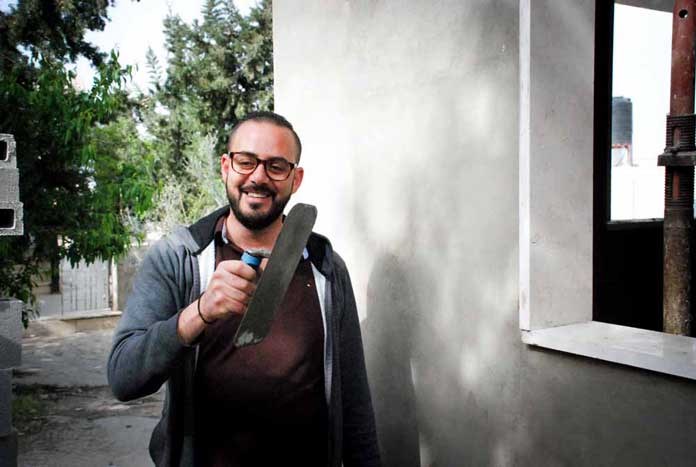
“Palestinians have succeeded in developing unique travel programs for Internationals to come and enjoy Palestine.”
— — — — — — — —
“For us Palestinians, who are living under the Israeli Military Occupation, we see the importance of tourism as a method of communicating our voice to the international community, sharing the reality on the ground and raising awareness about the injustice that we are facing on a daily basis.
Tourism is not only contributing to the Palestinian GDP but it is serving the Palestinian cause by allowing international visitors to meet the Palestinians, explore our culture, get introduced to our food, hear our stories, see the challenges on the ground, learn about our history, encounter different religious communities and immerse themselves in our traditions.
Despite the lack of resources to develop and accommodate more tourists in the Palestinian areas due to the Israeli Military control over the borders, water, electricity, movement and the land, Palestinians have succeeded in developing unique travel programs for Internationals to come and enjoy Palestine.”
We hope that each trip we run combines some, or all, of the elements Elias and Jane have described. We often sum these up as:
Whether it’s our Taste of Palestine, Indian Experience, Nicaraguan Adventure, women-only trips, walking tours or home rebuilds — to be effective, the trips must inspire, build solidarity and, we hope, change us. They must encourage us to tell the stories we have heard, to get involved in advocacy work or to give or raise funds in response to what we have experienced. They must also provide the space to stop and engage. I always consider each trip to Palestine to be a pilgrimage regardless of whether we visit any of the Holy sights, as I am going with a mindset that I want to have a meaningful encounter.
Ayla Lepine is an Amos Trustee. She joined our Board following a trip to Nicaragua in 2017
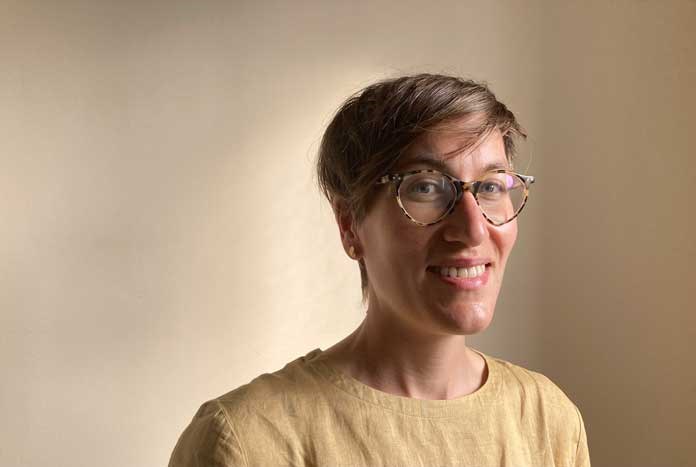
“The paradox of travelling to do this work is a challenge to explore.”
— — — — — — — —
“When I travelled to Nicaragua with Amos and CEPAD in 2017 it opened my eyes to climate injustice more than any other experience I’ve ever had. This trip motivated me to become a trustee and to have a lifelong commitment to learning about how communities are adapting and even thriving in times of urgent need.
The paradox of travelling to do this work is a challenge to explore. The trip was invaluable and was also a spur to my understanding of personal accountability for climate justice locally and globally.” Ayla Lepine, Amos Trustee
Next Steps
We could easily double the number of trips we run each year to Palestine. They would make a massive difference on the ground — to an economy in pieces, to changing perceptions, promoting the need for full equal rights for Palestinians, showing that people are not alone and making sure that the rampant violations that have occurred by the IDF since the pandemic began, cannot happen in the dark.
However, it only takes a cursory visit to the Dead Sea to observe the innate problems with this approach. It gives one of the clearest pictures of people’s environmental impact. The Dead Sea is shrinking by 1.4 metres a year. The aquifers that run into it have been syphoned off and the Jordan river is now merely a muddy stream. The salinity of the Dead Sea is approaching toxic levels as temperatures rise year-on-year. Experts forecast that it will not exist in 2050 with pipe dreams such as one to pump sea water from the Red Sea finally having the plug pulled on them by Jordan. It’s one story among many, and our impact on our natural world is all too evident wherever we turn.
What is also clear, as we open-up again and long to get on a plane and head off anywhere, is that we cannot avoid these uncomfortable truths. Choosing and booking flights (particularly long-haul flights), can’t simply be governed by what we can afford or what stop-overs we’d like to choose, like sweets from the Pick & Mix counter — the impacts on our planet are simply too great.
The Dead Sea is shrinking by 1.4 metres a year. The aquifers that run into it have been syphoned off and the Jordan river is now merely a muddy stream.
We are not saying that flights are the biggest cause of global warming. Nor are we failing to spot that only 5% of people are using 95% of flights and are responsible for an even higher percentage of emissions. But we cannot continue to burn more and more non-renewable fossil fuels and not experience the consequences.
So what do we do about it? We could stop flying (and we may have no choice about this) — but if we believe that we need to take people to visit places to really understand the impact, to act in solidarity and to create change, then this doesn’t work.
Dennis, Climate Lead at CEPAD, our partner in Nicaragua
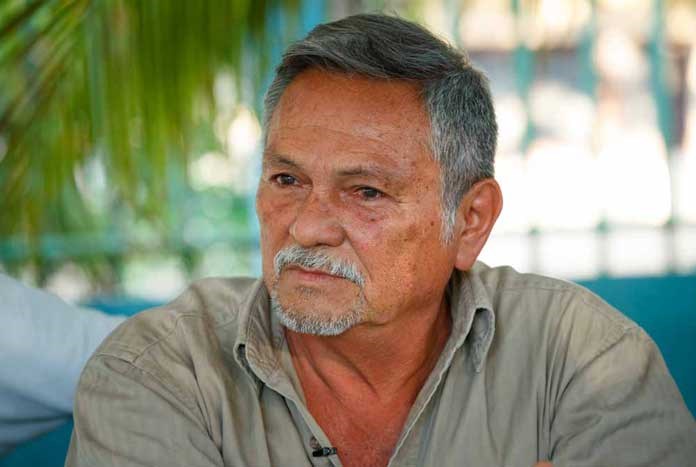
“These are the flights you must take. It’s very important, brothers and sisters, that you keep coming to our country.”
— — — — — — — —
“These are the flights you must take. It’s very important, brothers and sisters, that you keep coming to our country. Because even though, yes, there is contamination by flying, your support and presence allows us to work hand-in-hand to solve our problems with all of you. We hope you keep coming. So that you from Amos Trust and Nicaragua can work hand-in-hand, to confront the problems on this earth and here in Nicaragua.”
Our response
We have had policies in place for several years now to reduce our carbon footprint. These include:
Robin Message became an Amos Trustee after he and his wife Naomi walked from London to Jerusalem with Amos back in 2017
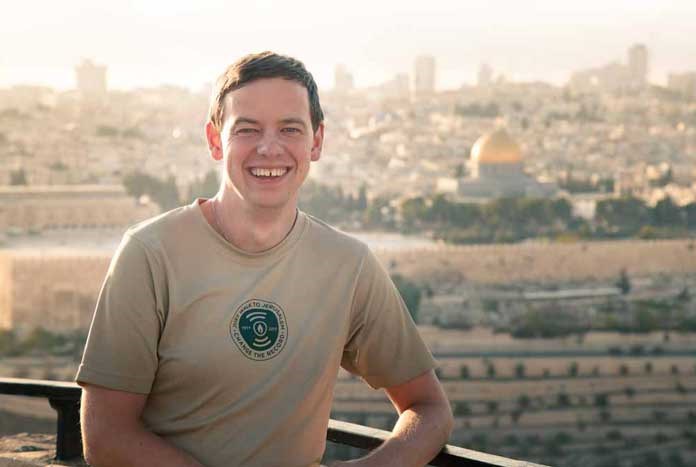
“Personally, I’ve stopped flying and started getting arrested with Extinction Rebellion (XR). I don’t know if that’s the right moral choice.”
— — — — — — — —
“There’s an interesting idea in Netflix’s ‘The Good Place’: Spoiler alert — the world is too complicated to make moral choices anymore. One character, Chidi, lives a life paralysed by indecision, but his choices are still not perfect. As it is with travel as a justice-focussed charity. If we visit our partners, and bring others to visit, we can help them more. But to do that, each flight brings a little more climate change, and helps continue to normalise flying as an ethical choice.
Personally, I’ve stopped flying and started getting arrested with Extinction Rebellion (XR). I don’t know if that’s the right moral choice. What I do know is that “courage calls out to courage” and that “an injustice anywhere is a threat to justice everywhere”, and that if I hadn’t flown with Amos to Palestine in 2015, I wouldn’t have walked across Europe for Palestinian rights in 2017, gone to support refugees in Calais in 2018, or become involved in XR in 2019.
Personally, I’ve stopped flying and started getting arrested with Extinction Rebellion (XR). I don’t know if that’s the right moral choice. What I do know is that “courage calls out to courage”.
Yes, we need to be considerate in the carbon we burn, but we also need to be inspired, so that hunger for justice can burn in us.” Robin Message, Amos Trustee
How can we take this further?
As we have said, we could have followed Robin’s decision (which we greatly respect), but we’ve decided, for the time being, to take this in a slightly different direction — to ask two simple questions before every flight.
This could be a recipe for taking the excitement out of our trips, over-burdening them with a narrow purpose. But that is certainly not the intention. I hope that, if anything, it means that we become even more committed to developing all the different strands that make them so important and enjoyable. I believe that we need to invest more in our trips, as opposed to less, so that we are able to maximise the impact of each flight.
I have travelled a great deal with Amos — sometimes it becomes easy to just hop on a plane. However, we need to challenge the mindset which comes with this, to make sure that we are not casually taking flights but really engaging with the benefit of each journey and how we are going to use the experiences that plane travel offers to have the best impacts.
Some of the ways we hope to do this are:
1. Providing information about the carbon footprint our flights will leave and practical ways to respond. We can do this by:
2. Keeping in touch with trip participants once they arrive back in the UK and linking them to resources to help them respond to what they have learned and experienced.
3. We are privileged to have many supporters who become passionately involved with our work and are able to go on multiple trips to visit our partners and we recognise that there are very strong reasons for going multiple times. It can be to feed and equip people to be involved in advocacy work, it can be a visit to support friends we have made, it is also crucial that we tease out why we are going in the light of the climate crisis we now face.
4. We want to create opportunities, such as the one I had, for people who cannot afford to travel with us without some financial support. We are particularly keen to help young people from the UK to visit our partners and connect and learn with other young activists.
Jane Walker, Amos Trustee — here with her daughter and Palestine activist, Luma, in the West Bank
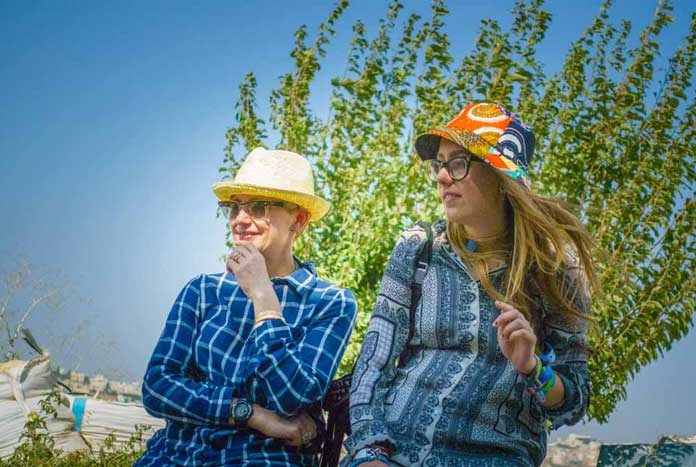
“The travel benefits versus climate losses conversation has gone round and round my head for some time and I was skilfully able to ignore it.”
— — — — — — — —
“The conversations we have been having as Trustees at Amos and the development of our Travel Policy have helped me to think about my personal responsibilities with regard to air travel.
I have now made a personal pledge to be more purposeful and mindful in my travel decisions. I am also going to take time to understand the carbon emissions that will be associated with any trips (something I had never considered in the past), and offset the carbon emissions wherever possible.
The conversations we have been having as Trustees at Amos and the development of our Travel Policy have helped me to think about my personal responsibilities with regard to air travel.
The travel benefits versus climate losses conversation has gone round and round my head for some time and I was skilfully able to ignore it. With my resolution to be more mindful and discerning regarding travel (and probably travel by plane less), I feel I am joining with a wider community of others striving to do the same. Together we will make an impact.”
Amos Trustee Richard Elliott from the Pickwell Foundation works with us on our Climate Justice work
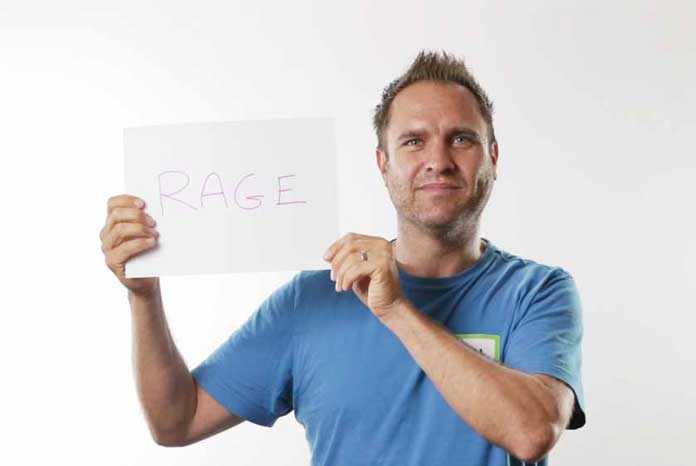
“We have a very small carbon budget if we are to keep this precious earth of ours habitable for the most vulnerable today, and for everyone tomorrow.”
— — — — — — — —
“Flying is about the single most carbon-intensive act that any of us can do. In this age of climate crisis, if we are going to fly, (and it has to be an if and not a when), then we have to make it count!
We have a very small carbon budget if we are to keep this precious earth of ours habitable for the most vulnerable today, and for everyone tomorrow. We have to treat travel as the extravagant luxury that it is — to explore, to connect, to listen, to learn and to understand…. and then come back to tell the important stories of what we have seen and heard. To use it as precious fuel to advocate for a more peaceful, more just and more habitable world for everyone.”
Conclusion
Does any of this square the circle — of course not. But it starts to ensure that we do not take travel for granted as a right afforded to only a few of us at the expense of everyone else.
Robert Cohen, Chair of Amos Trustees
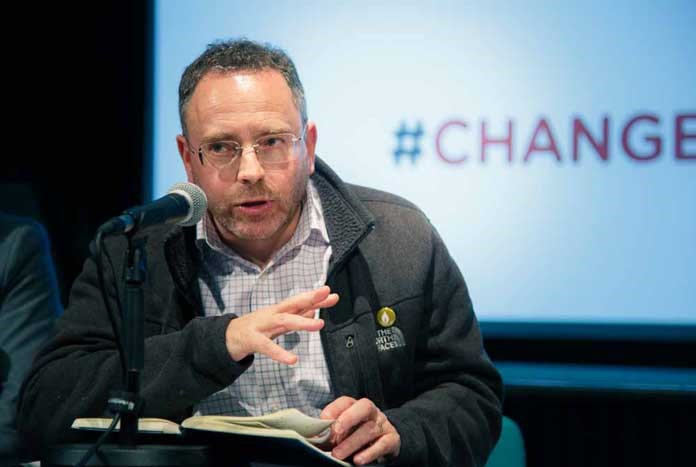
Let’s finish with these words from our chair Robert Cohen:
“Climate justice has been a central part of our work for many years. But we know that climate must now inform everything we do and relate to all of our partners and the projects we are supporting.
Issues of injustice are interconnected. Climate change is the clearest example of that interconnectivity. We know that travelling to meet our partners and seeing their work first-hand creates many years of powerful advocacy back home. And our partners want to see us! They value the friendships, which are deep and lasting. So balancing the impact of air travel with the impact of justice advocacy is vital but far from straightforward.
The experience of the pandemic has shown us how we can lift up the voices of our partners and give them access to new audiences without anyone needing to get on a plane. Covid helped us to become even more creative in our communications and conversations. But we know that cannot be the whole story. Meeting our partners face-to-face will remain central to our work. But we must do it in a way that enables our supporters and Amos as a whole to be mindful, responsible and active in how we integrate our climate concerns into everything we are doing.
Issues of injustice are interconnected. Climate change is the clearest example of that interconnectivity. We know that travelling to meet our partners and seeing their work first-hand creates many years of powerful advocacy back home. And our partners want to see us!
For us it means doing all we can to help our supporters make their personal advocacy really count for something. Air travel has to be justified as part of a bigger global effort to make the world a fairer place. And there are lots of ways that we can do this.”
— — — — — — — —
More First Of The Month
Other editions of our First Of The Month essays are available to read and download from here.
Words of Hope E-news
Sign up to receive our regular ‘Words of Hope’ emails and keep up to date with all the latest Amos news and information, including details of our trips and events, news from our partners around the world, and all of our campaigns.
Online reflection
Join us for ‘Words of Hope’ online every Tuesday at 5pm — simply click here to join us a few minutes beforehand.
Amos Trust
7 Bell Yard, London
WC2A 2JR
UK
Telephone:
+44 (0) 203 725 3493
Email:
[email protected]
Registered Charity No.
1164234

This item has been added to your shopping basket. Please click on the Checkout button below where you can choose your quantity.
Continue shopping Checkout Close